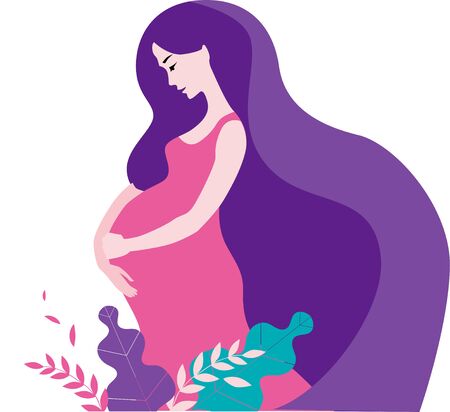Understanding Hand-Eye Coordination and Fine Motor Development
As a UK parent, supporting your babys growth involves more than just providing proper nutrition and a loving environment—it also includes nurturing essential skills such as hand-eye coordination and fine motor development. These milestones form the foundation for many activities your child will enjoy and rely on in later life, from feeding themselves to writing their first words at school. But what exactly do these terms mean?
Hand-eye coordination refers to your baby’s ability to use their eyes to guide the movements of their hands. This skill allows babies to reach for toys, grasp objects, and eventually feed themselves. Fine motor skills, on the other hand, are the small muscle movements in the hands and fingers that enable precise actions like picking up tiny bits of food or turning the pages of a picture book. Both hand-eye coordination and fine motor skills are crucial developmental milestones, typically emerging during the first year of life.
These abilities not only support independence but also contribute to cognitive development, problem-solving skills, and social interaction. In the UK, early years settings such as nurseries often observe these milestones to ensure children are progressing appropriately for their age group. Below is a simple table summarising key differences between hand-eye coordination and fine motor skills:
| Skill | Description | Examples in Babies |
|---|---|---|
| Hand-Eye Coordination | Connecting visual information with hand movements | Reaching for a toy, passing an object from one hand to another |
| Fine Motor Skills | Precise small muscle movements of hands and fingers | Pincer grasp (picking up small items), clapping hands, waving goodbye |
Understanding these early developmental stages helps you provide targeted activities and healthy foods that support your baby’s progress—ensuring they get the best start possible as they grow up in the UK.
2. Typical Developmental Milestones in UK Infants
Understanding how your baby’s hand-eye coordination and fine motor skills progress is essential for supporting their healthy development. In the UK, the NHS provides clear guidance on what parents can expect during the first year of life, allowing you to observe your baby’s growth with confidence and seek support when needed. Every child develops at their own pace, but certain milestones are commonly reached within specific age ranges.
Hand-Eye Coordination and Fine Motor Milestones: A Month-by-Month Guide
| Age Range | Key Milestones (NHS Guidance) |
|---|---|
| 0-3 months | Watches faces intently, follows moving objects with eyes, opens and shuts hands, brings hands to mouth |
| 4-6 months | Reaches for toys with one hand, brings objects to mouth, begins to pass items from one hand to another, bats at dangling objects |
| 7-9 months | Picks up small objects using thumb and fingers (developing pincer grasp), explores objects by shaking or banging them, transfers items between hands easily |
| 10-12 months | Points at things, puts objects into containers and takes them out, pokes with index finger, attempts to use spoon or cup independently |
UK-Specific Considerations
The NHS Healthy Child Programme emphasises regular health visitor checks at key ages (e.g., 6–8 weeks, 9–12 months) where fine motor and hand-eye coordination milestones are assessed. Parents in the UK are encouraged to actively participate in these reviews and share any concerns they may have about their baby’s progress.
When to Seek Advice?
If your baby is not reaching several milestones for their age group or if you notice signs such as persistent difficulty grasping objects or little interest in reaching out for toys by 6 months, it’s recommended to consult your health visitor or GP. Early support can make a significant difference.

3. Everyday Activities to Support Skill Growth
Fostering your baby’s hand-eye coordination and fine motor skills doesn’t require expensive toys or specialist equipment. Many practical, daily activities—using items commonly found in British homes—are highly effective for encouraging skill development. Here are some ideas tailored for UK families:
Simple Home Activities
| Activity | Household Items Needed | Skill Benefits |
|---|---|---|
| Stacking and Nesting | Plastic cups, yoghurt pots, stacking rings | Improves grasp, release, and spatial awareness |
| Spoon Feeding Practice | Baby-safe spoon, mashed foods (e.g., Weetabix) | Hand-to-mouth coordination, grip strength |
| Peg Play | Wooden clothes pegs, laundry basket | Pincer grip, finger dexterity |
| Treasure Basket Exploration | Various safe household items (wooden spoon, fabric scraps, soft brushes) | Tactile exploration, object manipulation |
| Tummy Time with Toys | Cushion, rattles or soft blocks | Reaching and grasping, arm and shoulder strength |
| Finger Painting | Non-toxic paints, large sheet of paper or old newspaper | Sensory play, finger control and coordination |
Outdoor Adventures in the UK Context
- Parks and Gardens: Let your baby pick up leaves or small twigs during a stroll in your local park—this helps refine their pincer grip and introduces them to new textures.
- Sand and Water Play: At the beach or using a sandpit in the garden, scooping sand with small buckets and pouring water develops hand strength and bilateral coordination.
- Bug Hunting: A classic British pastime—searching for ladybirds or worms encourages gentle handling and observational skills.
Tips for Everyday Success at Home
- Keep it Simple: Everyday items like empty cereal boxes can become building blocks; wooden spoons make excellent drumsticks for sound-making play.
- Supervise Closely: Always ensure that objects are baby-safe and supervise closely to prevent choking hazards.
- Create Routine Opportunities: Incorporate these activities naturally into your daily routine—for example, let your baby help with sorting socks during laundry time.
- Praise Effort: Celebrate attempts as well as successes to build confidence and encourage perseverance.
Nutritional Tip for UK Parents
A balanced diet rich in iron (from lentils or beef mince), vitamin D (from eggs or fortified cereals), and omega-3 fats (from salmon or rapeseed oil) supports healthy brain and nerve development—vital foundations for coordination skills. Pair hands-on activities with nutritious snacks to fuel your baby’s growth both physically and cognitively.
4. Food, Mealtimes, and Motor Skills
Introducing solid foods is a significant milestone for UK families, not just for nutrition but also for developing essential fine motor skills and hand-eye coordination. British weaning practices, particularly baby-led weaning (BLW), encourage little ones to self-feed with finger foods. This approach allows babies to explore food textures and shapes, which can strengthen their pincer grasp and promote coordination between what they see and how their hands move. Traditional UK finger foods—such as soft-cooked carrot sticks, steamed broccoli florets, small pieces of toast soldiers, and slices of banana—are ideal first foods that support independence while remaining safe for young eaters. Mealtimes become opportunities for skill-building as babies learn to pick up, hold, and bring different foods to their mouths. Below is a simple table outlining popular British finger foods and the specific motor skills they help nurture:
| Finger Food | Motor Skill Developed |
|---|---|
| Steamed Broccoli Florets | Grasping with the whole hand (palmar grasp) |
| Toast Soldiers | Pincer grip and hand-to-mouth coordination |
| Soft Cooked Carrot Sticks | Hand strength and controlled movements |
| Sliced Banana | Tactile exploration and gentle gripping |
UK parents are encouraged to create a relaxed mealtime environment, offering a variety of textures and sizes suitable for baby’s age. Allowing your child to play with and handle food—even if it gets messy—fosters curiosity, fine motor development, and self-feeding confidence. By incorporating typical British weaning foods in family meals, you’re not only nurturing your baby’s nutritional needs but also supporting the foundational skills needed for future independence.
5. Choosing Toys and Resources: UK Recommendations
Selecting the right toys and resources is crucial for supporting your babys hand-eye coordination and fine motor skills, especially within a UK context where safety standards and availability matter. Here’s expert advice on choosing engaging, developmentally appropriate options widely available in British shops and online.
Key Considerations for Toy Selection
When browsing for toys, always look for products marked with the CE or UKCA mark, ensuring they meet UK safety regulations. Opt for age-appropriate items free from small parts (to avoid choking hazards) and made from non-toxic materials. Consider multi-sensory features such as different textures, sounds, or colours to stimulate both motor skills and sensory development.
Popular Toy Types Supporting Motor Skills
| Toy Type | Recommended Age | Motor Skill Benefit | Where to Buy (UK) |
|---|---|---|---|
| Stacking Cups & Rings | 6+ months | Grasping, stacking, coordination | Smyths Toys, John Lewis, Argos |
| Soft Building Blocks | 6-12 months | Pincer grip, hand strength | Early Learning Centre, Mothercare Online |
| Shape Sorters | 9+ months | Problem-solving, fine motor precision | The Entertainer, Amazon UK |
| Board Books with Flaps/Textured Pages | 6+ months | Pincer grasp, finger isolation, visual tracking | Waterstones, WHSmith, The Works |
| Crawling Tunnels/Balls with Bells Inside | 6-18 months | Crawling practice, reaching/grasping coordination | Tesco Direct, Decathlon UK, JoJo Maman Bébé |
| Sensory Play Mats & Rattles | 0-12 months | Tummy time support, tactile exploration, early grasping reflexes | Mamas & Papas, Boots Baby Section, Dunelm Kids Range |
Sustainable & Local Options for UK Families
The UK has a growing market for eco-friendly and locally crafted baby toys. Look for brands such as Lanka Kade UK, Green Toys UK, PlanToys at Ethical Superstore or Not On The High Street. Choosing wooden toys or recycled plastic options not only benefits your babys health but also supports sustainability efforts.
Additional Tips:
- Rotate toys regularly: This keeps playtime fresh and encourages new movements and skills.
- Create simple DIY resources: Everyday household items like wooden spoons or cardboard boxes can make excellent supervised play tools.
- Avoid screen-based ‘toys’: For babies under one year old, hands-on play is far more beneficial than digital devices.
Selecting safe and stimulating toys from trusted UK retailers helps ensure your baby’s early motor skill development is both fun and secure. Always supervise play and enjoy these precious learning moments together!
6. When to Seek Further Advice
As a UK parent, it’s natural to wonder if your baby’s hand-eye coordination and fine motor skills are developing as expected. Every child grows at their own pace, but there are certain signs that may indicate your little one could benefit from additional support. Recognising these early is key to ensuring the best outcomes for your child.
Signs That May Indicate a Delay
| Age | Expected Milestone | Possible Concerns |
|---|---|---|
| 6 months | Reaching for and grasping toys, transferring objects between hands | No attempt to reach for objects or poor grip strength |
| 9 months | Pincer grasp (thumb and forefinger), banging objects together | Difficulty picking up small objects, not using both hands equally |
| 12 months+ | Scribbling with crayons, self-feeding with fingers | Unable to bring food to mouth, not pointing or waving |
How to Access Support in the UK
If you notice any of these signs or have concerns about your baby’s development, don’t hesitate to seek guidance. The NHS provides robust support for families, and you can start by contacting your local health visitor. Health visitors are qualified nurses or midwives who specialise in children’s health and development. They can assess your child’s progress, offer tailored advice, and refer you to further services if needed.
Steps to Take:
- Observe and note specific behaviours or concerns over time.
- Contact your health visitor through your GP surgery or local children’s centre.
- Attend regular developmental reviews (usually at 6–8 weeks, 9–12 months, and 2–2½ years).
- If recommended, access specialist services such as paediatric occupational therapy via the NHS.
Useful Resources:
- NHS Start4Life (nhs.uk/start4life) – Practical advice on child development milestones.
- Your local Family Hub or Children’s Centre – Community-based support and parent workshops.
Early intervention makes a significant difference. If you’re unsure whether your baby’s development is on track, remember that seeking advice is always encouraged within the supportive framework of the UK’s healthcare system. Trust your instincts—your proactive approach helps give your child the best possible start.


